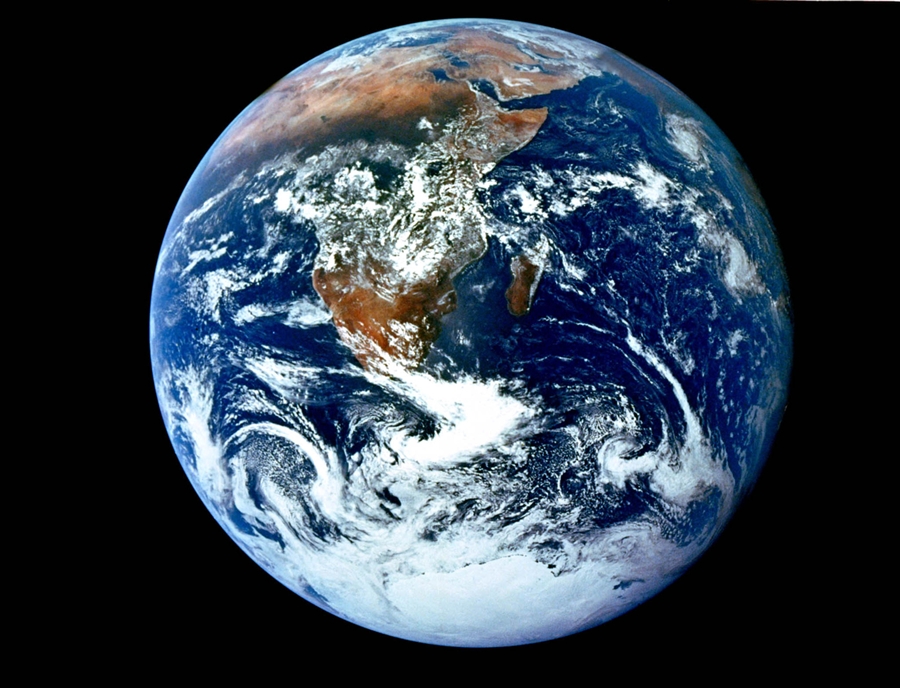By Qingyang Zhang, Y12
Thousands of years ago, humans thought that the earth was the centre of the universe, around which the heavens revolved. In 1543, Copernicus published On the Revolutions of the Celestial Spheres, proposing the heliocentric model of the solar system. By Galileo’s time, humans knew the earth was one of 8 planets orbiting around the sun. Today, scientists estimate that there are 100-200 billion stars in the universe, one of them being our sun. Far from being special, the earth is only a normal planet, orbiting a normal star in a normal galaxy.
However, the earth is special in that it provides the conditions necessary for the development of life. The universe has to be fine-tuned so that it has the “right” physical constants that allow for a planet like ours to exist. The cosmological constant lambda (Λ) is one of many such exact parameters. Lambda describes the rate of expansion of the universe. If lambda was too small at the beginning of the universe, the universe would have collapsed. End of story.
If lambda was too large, the universe would have expanded too fast for galaxies to form, let alone humans.
On top of the difficulties of creating the “right” universe to host an earth-like planet, creating the right biological conditions to spark life is also very difficult. Many conditions such as the right temperature, an energy source for active life processes and liquid water need to be present. If living is so hard, why do humans exist? Why are humans in a special environment?
In 1973, a physicist named Brandon Carter proposed his anthropic principle. The principle states that observers can only see the region of the universe that has the right conditions for the observers to exist, meaning the region is atypical. The fact that humans exist to observe indicates that the environment being observed is special. There is observer bias.
There are actually two versions of the anthropic principle, the strong anthropic principle, and the weak anthropic principle.
The strong anthropic principle argues that there must be a creator who fine-tuned the universe so that life can exist. It is often used by religious people as an explanation for the existence of God, much like the cosmological argument.
The weak anthropic principle, on the other hand, does not involve any kind of creator or God. However, many physicists who believe in the weak anthropic principle accept the idea of a multiverse, where there are many universes with arbitrary physical constants. Statistically, the chance of a universe with the right conditions is low, but given enough universes in a multiverse, there must be some that sustain life. Using anthropic reasoning, humans can only be in one of the universes that are suitable for life. The idea of a multiverse is appealing to materialists because it does not need a creator to fine-tune the physical conditions.
The anthropic multiverse idea is similar to biological natural selection in its approach. In natural selection, many genetic mutations occur, most of which are unsuccessful (low rate of survival). However, given enough time, many mutations are “tried”, and some are successful. Therefore, the species survive and continue mutating. This is analogous to the multiverse idea, where a large number of universes “mutate” to have different physical constants. Those with advantageous mutations for the existence of life have specific physical conditions. These specific universes allow life to emerge, which, according to humans, is a sign of success, since these universes “survive” to be observed by humans.
Sources:
Anthropic principle: https://www.youtube.com/watch?v=q-6oU3jXAho&t=773s
Anthropic principle and multiverse: https://www.youtube.com/watch?v=eF2v9oSy70I&t=752s
Hubble telescope: When Hubble Stared at Nothing for 100 Hours
Brandon Carter: The Anthropic Principle
Fine-tuning of physical constants: Fine-tuned universe
Helen Czerski: Storm in a teacup
Conditions required for life: Q&A: The 5 Ingredients Needed for Life Beyond Earth
Britannica anthropic principle: https://www.britannica.com/science/anthropic-principle#ref285291



